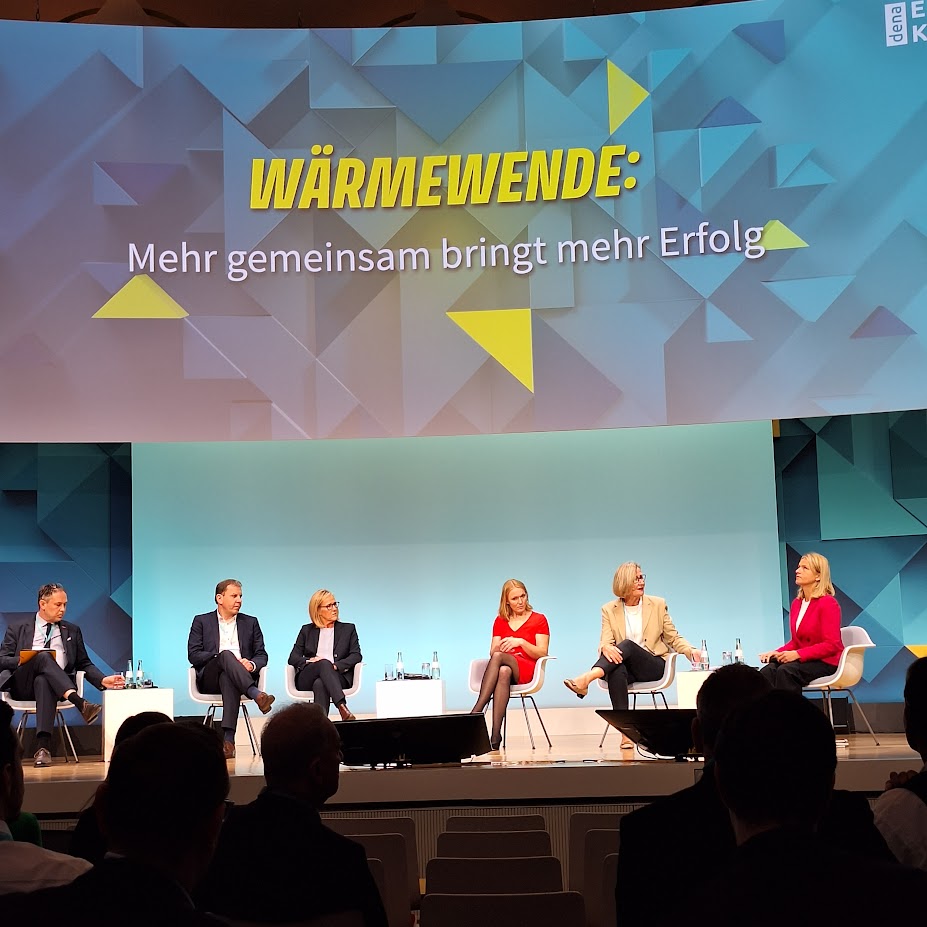dena Energy Transition Congress 2023 in Berlin
The future of the heating transition in Germany: focus on heat planning
The “Heating Act” caused quite a stir last summer. In order to achieve the climate targets, the German government announced changes to the Building Energy Act (GEG). The new Heating Planning Act is also closely linked to this: local authorities are required to submit plans by June 30, 2028 at the latest on how heating should be supplied in the future. Both laws will come into force on January 1, 2024.
“We are keeping a close eye on developments,” says Campus Director Prof. Dr.-Ing. Haresh Vaidya, who is himself directly affected by the changes in his role as an energy consultant. “There will be a lot of demand for municipal heat planning (KWP) in the coming years. We therefore want to prepare our students for these tasks in the best possible way at an early stage. We are therefore currently working on pilot projects to gather experience and are actively exchanging ideas with other stakeholders,” says Campus Coordinator Dr. Gerd Hofmann.
Every year, the German Energy Agency’s (dena) Energy Transition Congress brings together experts in the field and facilitates an intensive exchange of ideas. The Feuchtwangen Energy Campus at Ansbach University of Applied Sciences was also represented in Berlin from November 13 to 14. The congress was opened by Corinna Enders, Chairwoman of the dena Management Board. dena provides nationwide and international support to shape and implement the German government’s energy and climate policy goals for the energy transition and climate protection.
A successful heating transition is crucial for the success of the overall energy transition and achieving climate neutrality by 2045. In this context, the challenges that municipalities must overcome in implementing the legal requirements for the heating transition were discussed in particular.
Residential buildings and neighborhoods must first be made energy-efficient for the future. The widespread use of decentralized heat pumps in residential and non-residential buildings was demonstrated primarily on the basis of experiences and findings from neighbouring European countries.
In addition to the decentralized supply with primarily heat pumps, existing and new networks for the supply of district heating or hydrogen should be expanded where economically feasible. Initial approaches and best practices for this were presented.
It was emphasized several times that determination and cooperation as well as the involvement of stakeholders are crucial for the successful implementation of municipal heat planning.

The role of digitalization and data in municipal heat planning was also highlighted. A lot of consumption data needs to be recorded continuously for the necessary monitoring. This opens up numerous opportunities for new energy services, such as flexible tariffs or generation-adapted consumption.
The congress offered a comprehensive discussion on various aspects of the heating transition, from legal framework conditions and technological solutions to international perspectives and experiences.
